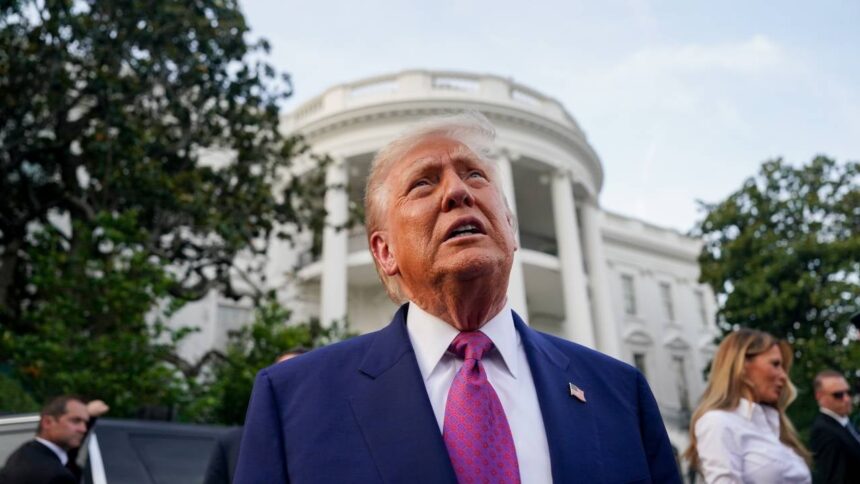Israel’s attack on Iran is the latest geopolitical event that investors have faced in recent years, along with others, including Donald Trump’s election and attempts to assassinate him during the campaign. Russia’s invasion of Ukraine and the ongoing Israel-Hamas War also sparked a market response. It is well known that events like this can affect financial markets, but how and why?
Here’s how geopolitical events affect the stock market and how investors can protect themselves from risk.
How geopolitical events affect the stock market
Geopolitical events such as elections, wars, assassinations, and terrorist attacks can have a significant impact on the performance of stock markets across different sectors. This impact usually stems from the uncertainty these events introduce into the global economic environment. For example, elections can generate market volatility due to uncertainty about future government policies that could affect economic growth.
After Israel’s shocking attack on Iran this week, all three key metrics fell in early trading. Oil prices jumped as traders tackled the impact of attacks in key regions of global energy.
Geopolitical tensions and conflicts can disrupt international relations and economic partnerships, leading to market uncertainty and volatility. Stock market initial responses to these events often decline as investors work to deal with fear and understand how events will affect future economic growth. Over time, the impact of geopolitical events is usually limited, with other variables where corporate revenue growth and interest rate levels play a major role in determining market returns.
It is also worth noting that geopolitical events are just one variable that can affect the stock market on a given day. At any time, market participants weigh different variables, so it is not always clear how much market movement is due to a particular geopolitical event.
Notable geopolitical events and their impact of stock markets
Historical examples show that while many geopolitical events have a significant short-term impact on the stock market, their long-term impact varies depending on the nature and severity of the event. Here’s how the S&P 500 was played after notable events of the past century:
| Geopolitical events | date | one day | Total drawdown | bottom | recovery |
|---|---|---|---|---|---|
| Attack on Pearl Harbor | December 7, 1941 | -3.8% | -19.8% | 143 days | 307 days |
| JFK Assassination | 11/22/1963 | -2.8% | -2.8% | One day | One day |
| Iraq’s invasion of Kuwait | 8/2/1990 | -1.1% | -16.9% | 71 days | 189 days |
| Attack on September 11th | 9/11/2001 | -4.9% | -11.6% | The 11th | 31st |
| London bombing | 7/5/2005 | 0.9% | 0.0% | One day | 4 days |
| Boston Marathon bombing | 4/15/2013 | -2.3% | -3.0% | 4 days | 15th |
| Russia-Ukraine War | 2/17/2022 | -2.1% | -6.8% | 13th | 23rd |
| Israel-Hamas War | 10/9/2023 | 0.3% | -4.5% | 14th | The 19th |
Source: LPL Financial
Unexpected geopolitical events often lead to a much lower initial stock market response. The decline can last for days or weeks as the market digests the risk. However, in the long term, the stock market tends to recover, often reaching new highs in the years following the event.
Although rare, there has been a time in history where financial markets were completely closed in response to geopolitical events. The stock and bond markets were closed for several months in 1914 after the start of World War I, and the market closed for three days after the September 11th attack in 2001.
How to protect your portfolio from geopolitical risks
Navigating the turbulent waters of geopolitical events can be daunting. However, they can arm themselves with appropriate strategies to protect their investments against these risks and market volatility. The important steps to consider are:
- Fighting the urge to sell: The temporary shock caused by geopolitical events can create a sense of panic. However, it is important not to rush to sell assets such as stocks. History suggests that the impact of international conflicts on markets is usually short-lived, and that markets tend to recover within months of the crisis.
- Portfolio diversification: Diversification – Investing in a variety of asset classes, sectors and regions is a proven strategy to buffer against market slump. By spreading investment, we reduce risk and dependence on the dynamics of a single market.
- Maintain a long-term focus: Despite the short-term market volatility due to geopolitical events, it is essential to focus on long-term investment goals. This perspective helps to avoid halting temporary losses by selling during periods of uncertainty.
Although there is no strategy to completely eliminate the risks associated with geopolitical events, these techniques can help manage and mitigate the potential negative impact on investment. Remember that every investor’s situation is unique. Therefore, adjust these strategies to align with your specific needs and financial goals.
– Bank Rate Logan Jacoby I contributed to updating this article.
Editorial Disclaimer: All investors are advised to conduct their own independent research into investment strategies before making an investment decision. Furthermore, investors recommend that past investment products performance is not a guarantee of future price increases.
Was this page helpful?
Why you want feedback?
Feedback helps us improve our content and services. It takes less than a minute to complete.
Your response is anonymous and will only be used to improve our website.
Helps to improve content


